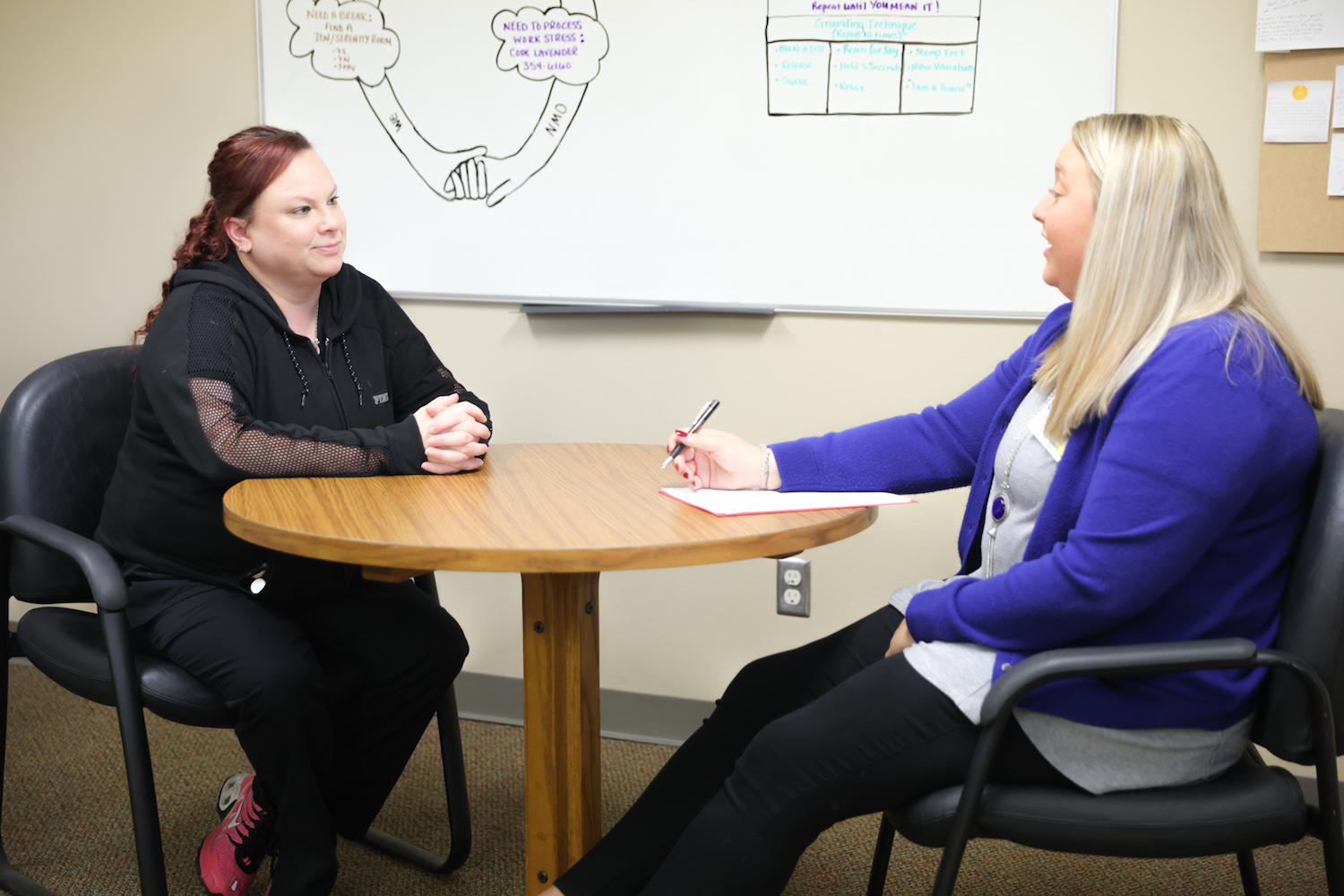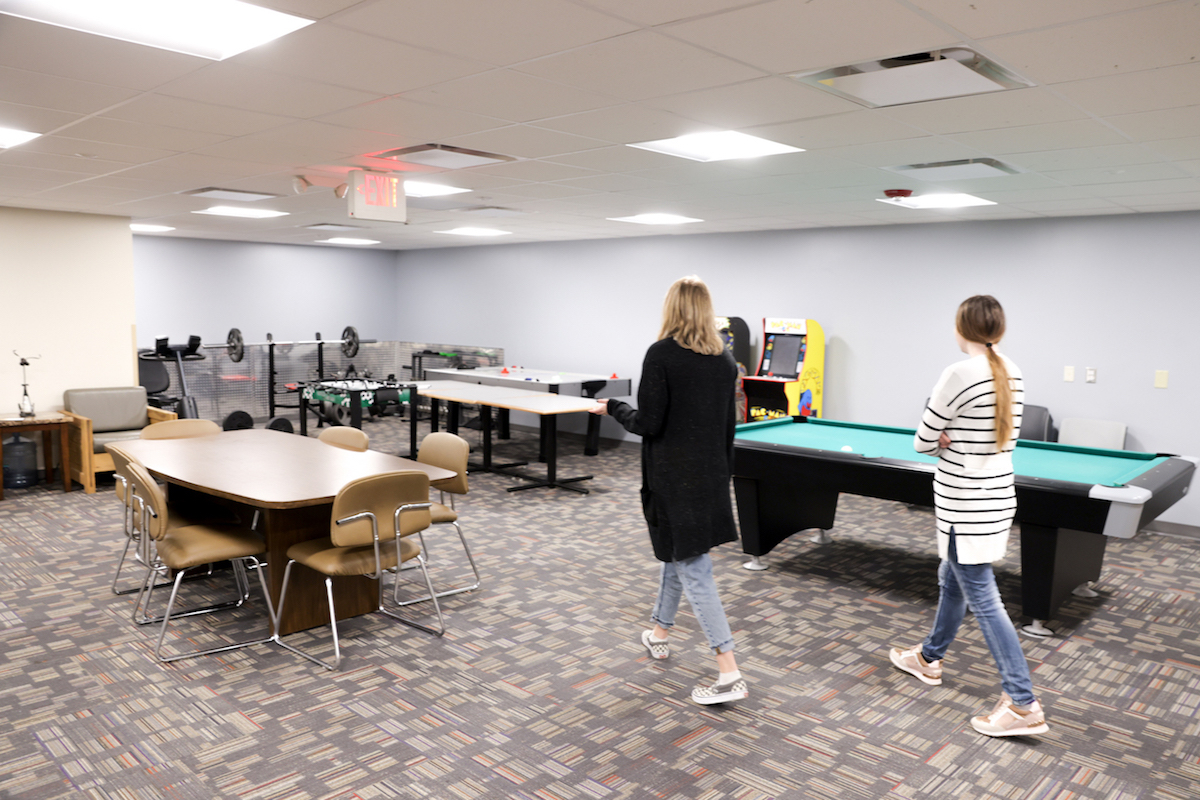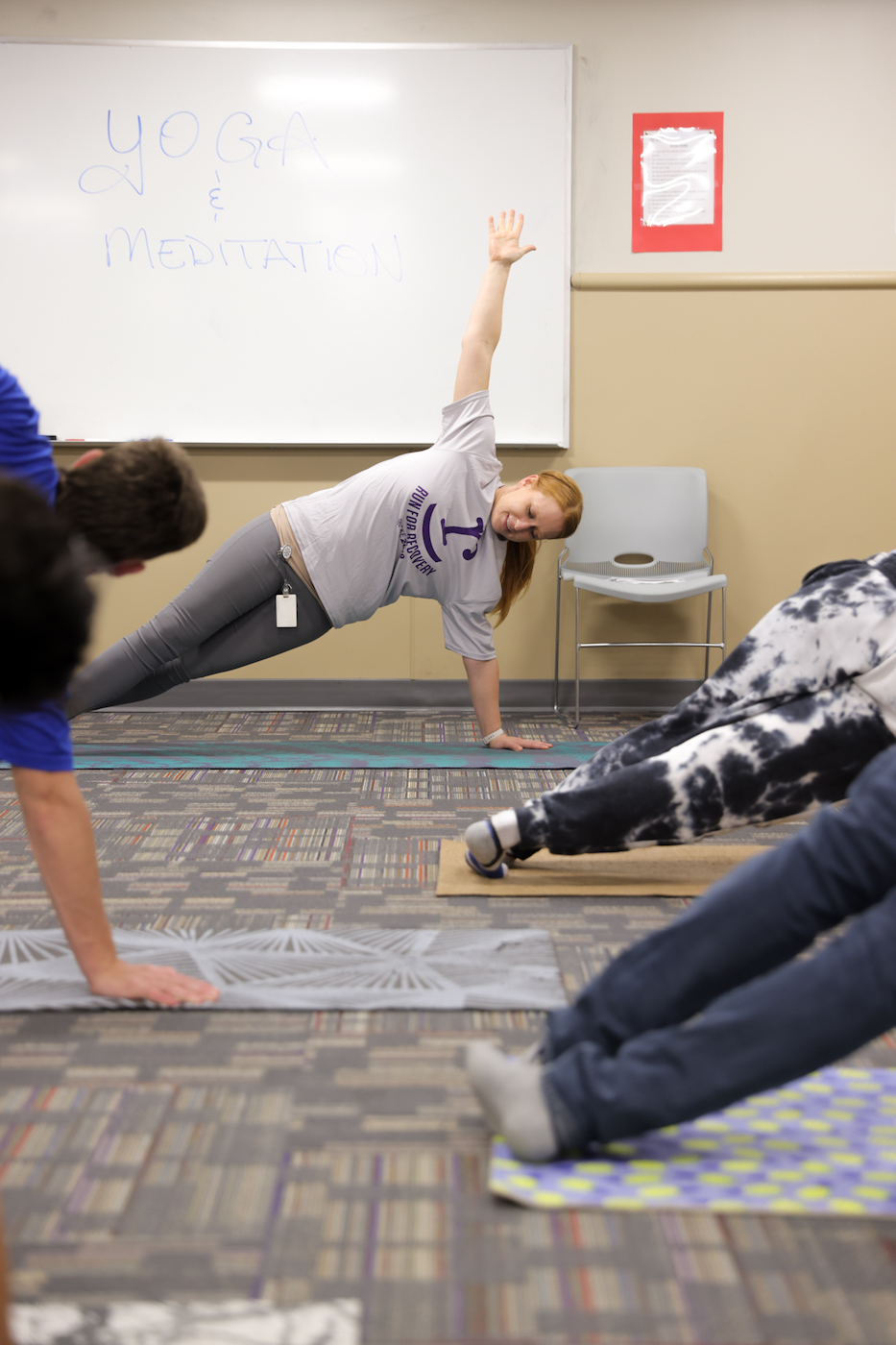Helping Women Achieve Long-Term Recovery
Kansas Helping Empower and Recover Together (KS-HEART): Family Centered Treatment for Pregnant and Post-Partum Woman
Through our 90 day Designated Women’s Program, Bridghouse, we assist woman and woman with children with access to addiction health care services in a recovery based setting with supportive housing. With the KS-HEART program, we can continue to bridge identified gaps in care specific to pregnant and postpartum women, support family based services, and extend access to the care and resources needed to achieve long-term recovery.
If you or someone you know is interested in learning more about this program please contact bridgehousereferral@ckfaddictiontreatment.org or call 785-825-6224.

Our program includes:
- Safe and supportive housing
- Onsite addiction health care services
throughout the week with Licensed
Addiction Counselor and Kansas Certified
Peer Mentor. - Onsite case management to ensure women,
and women with children, have access to
resources that will help them improve their
lives in meaningful ways - Counselor led evening group sessions
- Assistance in accessing and utilizing
community resources - Childcare Assistance and Support
- Life Skills Classes
- Parenting Classes
- Money Management Classes
- Personalized Goal Development and
Support - Recovery Support Group Connections

Eligibility Requirements
Women who qualify for Intensive Outpatient Substance Use Disorder Treatment Services Women willing to participate in the structure of the Bridgehouse Program Women with one or more children that are willing to participate in and qualify for a Intensive Outpatient Substance Use Disorder Program.
Assessment
To determine if you qualify for services, you will need to complete an assessment. This will allow a Licensed Addiction Counselor to determine what level of care is most appropriate and meets your needs. Following the assessment, the Licensed Addiction Counselor will discuss with you your diagnosis, recommended level of care, and any recommendations they may have.
Treatment Planning Session
The treatment planning session will allow for you and your counselor to get to know each other and create a map for your time with us. This map, or treatment plan, will outline the goals that matter most to you so that you and the counselor can begin thinking of how you might reach those goals. Planning for progress as you are starting outpatient services as well as attending all of your sessions will allow you the highest likelihood of success in treatment. We want to make sure that we fully understand the things that you would like to see change in your life so that we can support you in the process of making them life long changes.
Moving In
Following the assessment, you will be scheduled for a move-in date. One of our intake staff will meet with you to give you information and visit with you about the health care service you will be starting. During this appointment, you will receive information about the service, complete some paperwork showing that you have been informed of the service you are beginning, be able to ask any questions you may have, and be scheduled to meet with your counselor for a treatment planning session.
How It Works
You will attend sessions with your CKF counselor, peer mentor, and case manager.
Peer mentors are individuals who have lived recovery experience and are certified by the state to provider services. This team of qualified staff will work together to help you build the skills necessary to manage addiction long-term.
Actions
Building skills pertaining to your cognitive (thoughts), emotional (feelings), and behavioral (behaviors/actions) processes are going to be very important to your recovery. The evidence based treatment curriculum that is utilized will focus on these components and is referred to as Cognitive Behavioral Therapy.
Function
You have learned over time how you function and react based on substances affecting the reward process in your brain. As a substance is removed from the brain by stopping use, the brain must get used to working on its own without those substances. This process of retraining the brain to use naturally occurring chemicals to produce positive feelings can take time. You can do it with the right planning and support.
Relationships
The relationships and support you build amongst your treatment group and with CKF and Ashby staff will allow you to take steps that will create lasting change. After your outpatient care is completed, a peer mentor will provide follow up care so that we can be there along the way and help out if there are any set backs. These moments can be frustrating, but it is important to use them as opportunities to review with our staff, re-evaluate your plan, and make adjustments to improve your desired outcomes.
Creating foundations for success
Our Women’s Treatment Program is a great place to continue your recovery journey after your sobriety has stabilized. This program makes it a little easier to gain control of all the other pieces of your life that have become difficult to manage. Having stable housing with plenty of resources available on-site will create a strong foundation for success.
Living With My Addiction
A Story from a Brdigehouse Patient
At age 37, Molly broke free from her heroin addiction and is living in recovery. Molly began her journey through CKF’s unique Bridgehouse Program on November 24, 2021. “The day I showed up, I only had two bags of everything I owned, and I was scared,” Molly shared. The Bridgehouse staff welcomed her, and they helped Molly move into her apartment and immediately started her treatment plan. Molly was required to meet weekly with her counselor and recovery coach, as well as attend group sessions with other women. Not only did Bridgehouse help Molly manage her addiction, but they also provided her with food assistance, personal development, access to community resources, and life skills classes. “I started going to craft class on Fridays and really found an outlet. I learned how to express myself in a healthier way,” said Molly. Molly also enrolled in the financial literacy program. “It was one of the missing pieces to my recovery,” she said.

We are here to make your first step towards recovery a little bit easier.
For more information and support, please visit with a Recovery Coach by calling 785-825-6224 or by using Help Now.

Our Addiction Health Care Services
About CKF
Addiction Treatment
CKF Addiction Treatment understands that addiction is a chronic disease that requires chronic disease management.
We have been providing addiction health care since 1967 and are continuously focusing on innovating our care delivery to match the needs of our patients. Though addiction can be challenging and confusing for those who have an addiction, there are care pathways available for you. CKF Addiction Treatment is here to make sure you are not alone on your journey to a better tomorrow.

Can I show up to the service location and move in today?
Can I show up to the service location and move in today?
Can my children come with me to this program?
Yes, children are welcome to come with you when you attend this program. When you are being scheduled for your move-in date, you will review the number of beds needed with our intake staff. Your admission date will be scheduled based on bed availability for you and your child(ren).
Can I live at the Women's Program as long as I need to?
Our intensive outpatient program does include housing but is typically a 90 day program. Following completion of that program, there is an opportunity to move in to separate, transitional housing. You will begin working on your housing plan with on-site case management staff upon admission.
How much will I be charged for rent?
Our intensive outpatient program includes free housing while you are attending the program. No payment from you is necessary. The program will be covered by insurance, state Block Grant funds, or other funding resources. Very rarely would this program neeed to be self-pay. If that were the case, we would review sliding scale cost with you based on your individual income.

